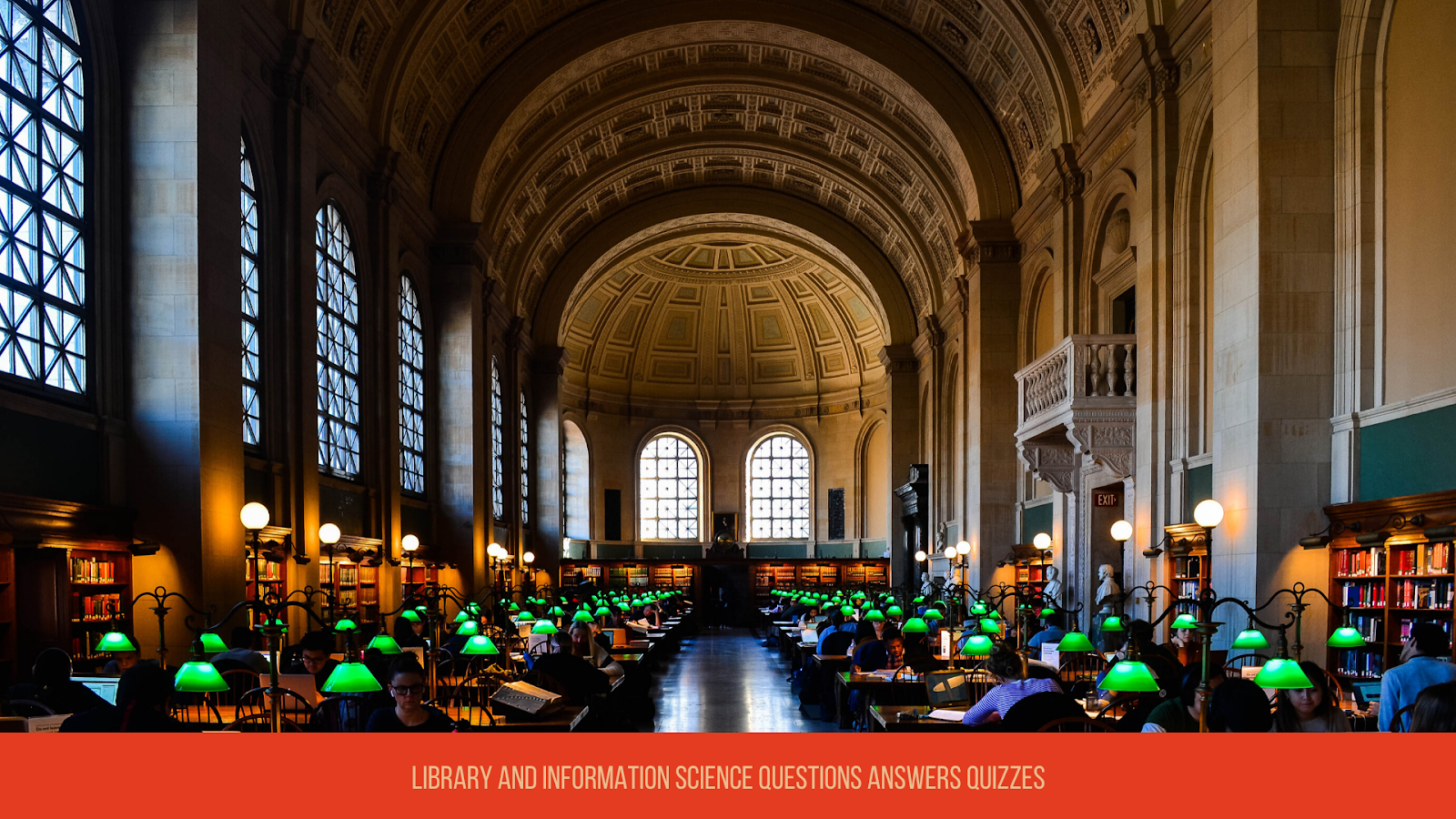QUESTION
The report of National Knowledge Commission in India is called as?
OPTIONS
(1) NKC report
(2) Libraries as a gateway of knowledge
(3) Libraries are the pillars
(4) None of these
ANSWER
(2) Libraries as a gateway of knowledge
The report of National Knowledge Commission in India is called as Libraries as a gateway of knowledge.
Committees and Commissions in India on Libraries and Library Science Education in India:
1. Committees and Commissions by Govt. of India
2. Committees and Commissions by UGC
Committees and Commissions by Govt. of India on Libraries
Advisory Committee for Libraries (1957): Also called as K. P. Sinha Committee, the committee gave its report in 1958. The main recommendations of the committee are:
- to set up an expert committee for the re-organization of the syllabus, teaching methods and examination in prevailing diploma courses;
- to provide financial assistance to universities by UGC for establishing full-fledged library and information science teaching departments; and
- the teachers in library and information science should have same terms and conditions as in other departments.
National Policy on Library and Information System (1986): In 1985, Government of India set up Committee (CONPOLIS) with Prof. D.P. Chattopadhyaya as its Chairman. It submitted its report in 1986. It was further assessed by Empowered Committee in 1988. Its recommendations were examined by Working Group which gave its report in 1993. Its recommendations are for Public Library system in India.
National Knowledge Commission (2005) was constituted on 13th June 2005 with a time-frame of three years from 2nd October 2005 to 2nd October 2008. The report was named as “Libraries as Gateways to Knowledge.”
National Mission on Libraries (2012), a high level committee was set up by Ministry of Culture, Government of India in 2012 in pursuance of National Knowledge Commission’s recommendations. The National Mission on Libraries was launched on February 3, 2014, by the then President of India, Mr. Pranab Mukherjee. The NML has set up four working groups which have formulated the scheme for upgrading the libraries. The main component of NML is the creation of NVLI (National Virtual Library of India).
Committees and Commissions by UGC on Library Science Education
Library Committee (1957) was chaired by Dr. S R Ranganathan to look into the functioning of academic libraries. The committee recommended that the university departments should offer professional courses leading to bachelor’s degree, master’s degree and Ph.D. degree and convert all diploma courses into degree courses.
Review Committee on Library Science Education (1965) was again chaired by Dr. S R Ranganathan. This committee was set up for the improvement of standard of LIS education. The committee recommended the syllabus of bachelor and master level courses. It gave
recommendation about faculty-student ratio and formation of independent library science departments.
Curriculum Development Committees (1990 & 2001): UGC set up two curriculum development committees. The first was in 1990 chaired by Prof. P N Kaula. Second was in 2001 headed by Dr. C R Karisiddappa. Both committees framed the syllabus to bring standardization in LIS education in India. The second curriculum committee laid emphasis on two-year integrated master’s degree course and its implementation.
NOTE
- This question was asked in the Emerging Trends & Technologies in Library & Information Services (ETTLIS), an Online Course developed by the Indian Institute of Technology library.
- Library and Information Science Questions Answers Quizzes
- Committees and Commissions in India on Libraries and Library Science Education in India
REFERENCES
1. Swayam, "Emerging Trends & Technologies in Library & Information Services (ETTLIS)," https://swayam.gov.in/nd2_arp19_ap78/preview (accessed February 11, 2020).
FEEDBACK
- Help us improve this Library and Information Science quiz article! Contact us with your feedback. You can use the comments section below, or reach us on social media.


